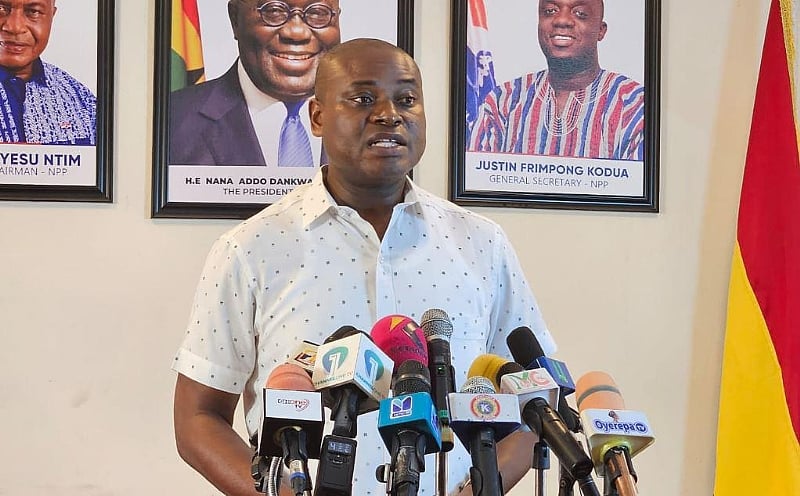The simmering controversy surrounding the acceptance of deportees from the United States by the Ghanaian government has ignited a heated debate about constitutional procedures and executive powers. Richard Ahiagbah, the National Communications Director of the ruling New Patriotic Party (NPP), has launched a scathing attack on the government, accusing them of circumventing parliamentary approval, a move he deems a blatant violation of Article 75 of the 1992 Constitution. This article mandates parliamentary ratification for international agreements that impose financial obligations on Ghana or involve the modification of existing Ghanaian laws. Ahiagbah contends that the government’s acceptance of the deportees constitutes such an agreement and therefore requires parliamentary scrutiny. He draws parallels to the controversial 2016 transfer of Guantanamo Bay detainees to Ghana, which was also executed without parliamentary approval and later challenged in court. Ahiagbah’s criticism paints a picture of a government increasingly operating outside the bounds of the law, highlighting not only the deportation issue but also recent allegations of government involvement in illegal gold purchases from unlicensed miners.
Foreign Affairs Minister Samuel Okudzeto Ablakwa has responded to these accusations, defending the government’s actions. He maintains that the arrangement with the US government concerning the deportees is not a treaty requiring parliamentary ratification but rather a Memorandum of Understanding (MoU). He further asserts that the Attorney General advised against parliamentary involvement, suggesting that the MoU falls outside the purview of Article 75. Ablakwa emphasizes the humanitarian grounds upon which the decision was made, portraying the acceptance of the deportees as a compassionate act rather than a formal international agreement. He explicitly states that the agreement does not signal an endorsement of the US immigration policy, which has been criticized for its stringency, but rather reflects Ghana’s commitment to humanitarian principles.
The core of the disagreement lies in the interpretation of the arrangement between Ghana and the US. Ahiagbah insists that the agreement, regardless of its label, carries significant implications for Ghana and therefore necessitates parliamentary oversight. He argues that the acceptance of deportees, particularly in larger numbers, inevitably places a burden on Ghana’s resources and potentially introduces security risks. The lack of transparency in the process, according to Ahiagbah, fuels suspicion and undermines public trust. He sees the government’s reliance on a MoU as a convenient maneuver to bypass constitutional requirements and avoid accountability. This, he argues, sets a dangerous precedent for future dealings with international partners.
Ablakwa, on the other hand, maintains that the MoU is a non-binding instrument focused solely on facilitating the dignified return of Ghanaian citizens who have been deemed inadmissible in the US. He argues that the agreement does not create any new financial obligations for Ghana nor does it modify existing laws. The humanitarian aspect of the situation, he emphasizes, overrides the need for extensive legal procedures that could delay the return of these individuals. He suggests that prioritizing parliamentary approval would have unnecessarily prolonged the process, leaving the deportees in limbo and undermining the humanitarian objective.
The public debate surrounding this issue underscores the complex relationship between executive power and parliamentary oversight in Ghana’s constitutional framework. The 2017 Supreme Court ruling in the Guantanamo Bay detainee case, while not directly applicable to the current situation, looms large in the background. That ruling established the principle that international agreements with significant implications for Ghana require parliamentary ratification. The current controversy, therefore, hinges on whether the deportation arrangement falls within the scope of that precedent. The absence of a clear definition of what constitutes a “significant implication” has created a gray area that is open to interpretation.
Ultimately, the resolution of this debate requires a careful examination of the specific terms of the MoU and an assessment of its potential impact on Ghana. A transparent and open discussion involving legal experts, constitutional scholars, and representatives from civil society is crucial to determine whether the government’s actions align with constitutional principles. The outcome of this debate will not only shape the handling of this specific deportation case but also influence the interpretation of Article 75 and the balance of power between the executive and legislative branches of government in future international agreements. This case highlights the fundamental importance of upholding constitutional processes and maintaining public trust in government action.














